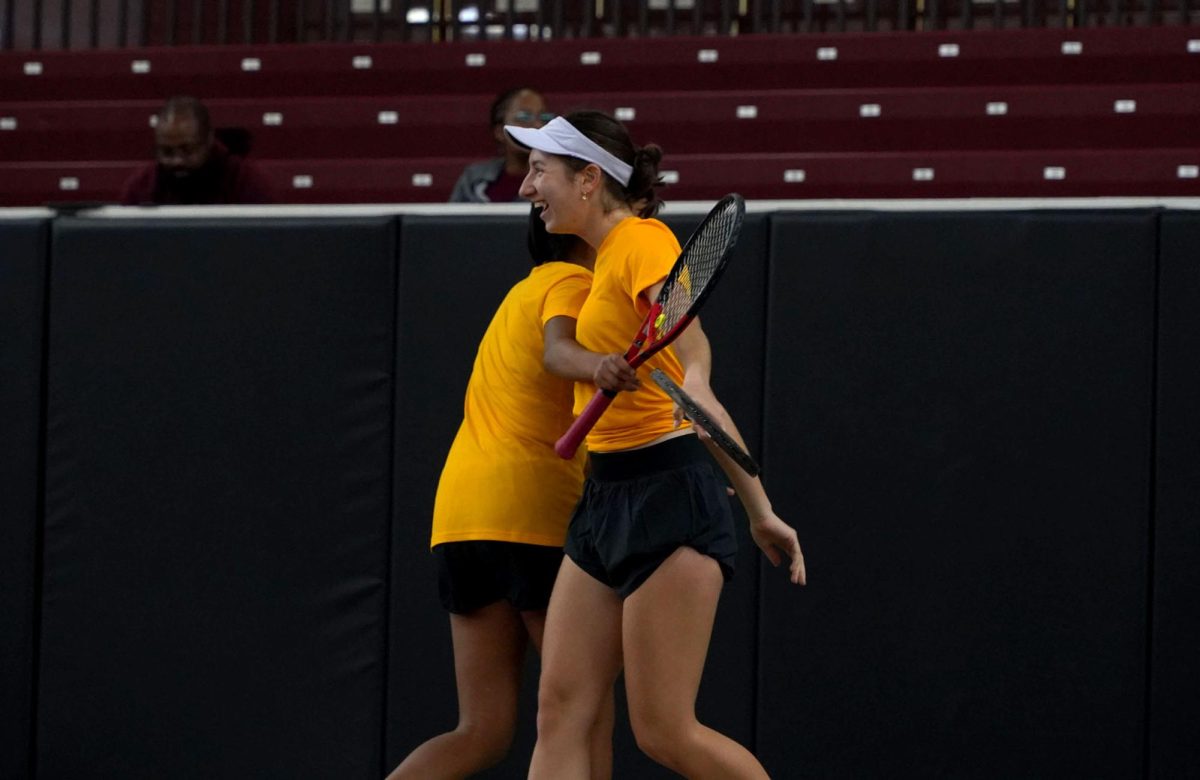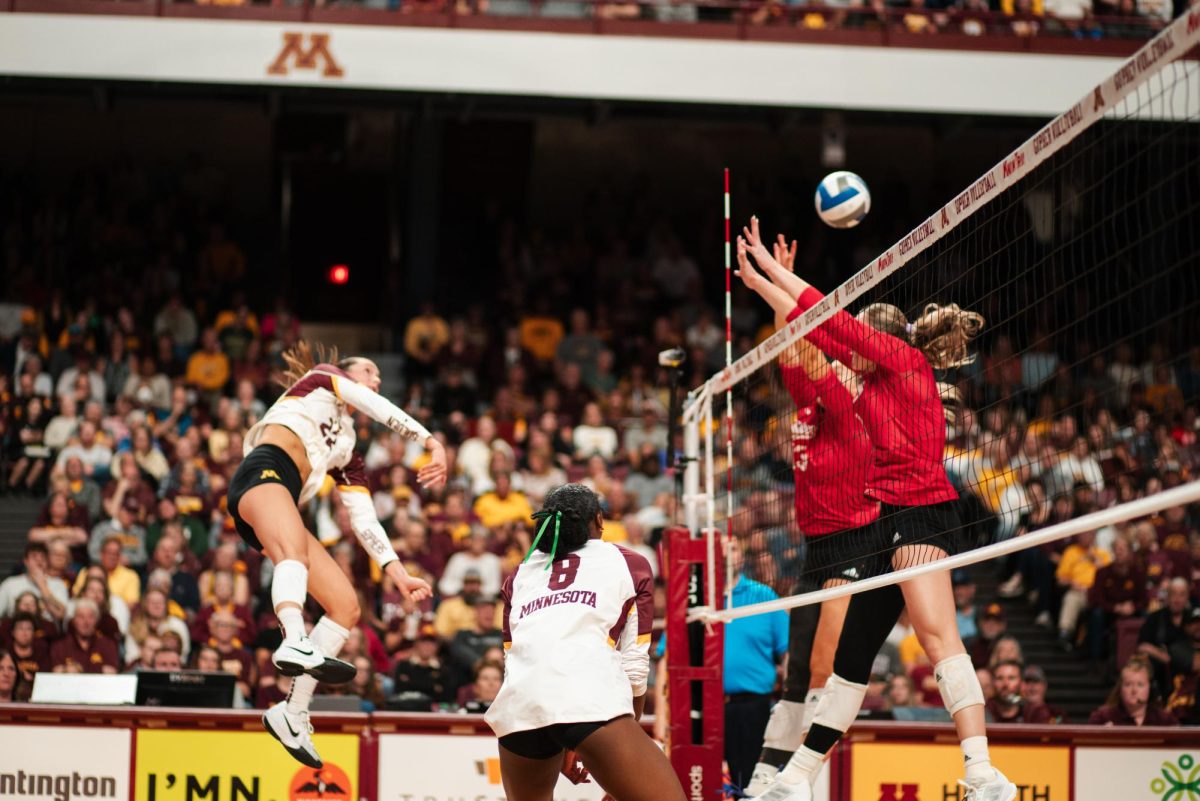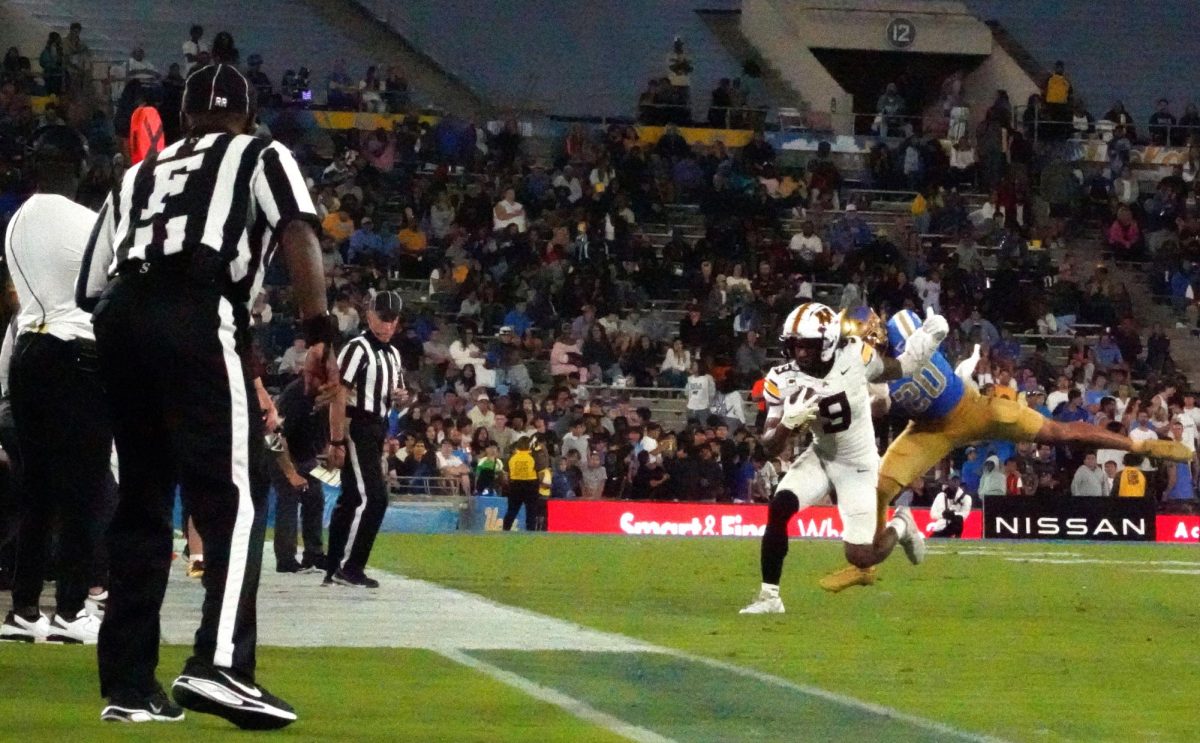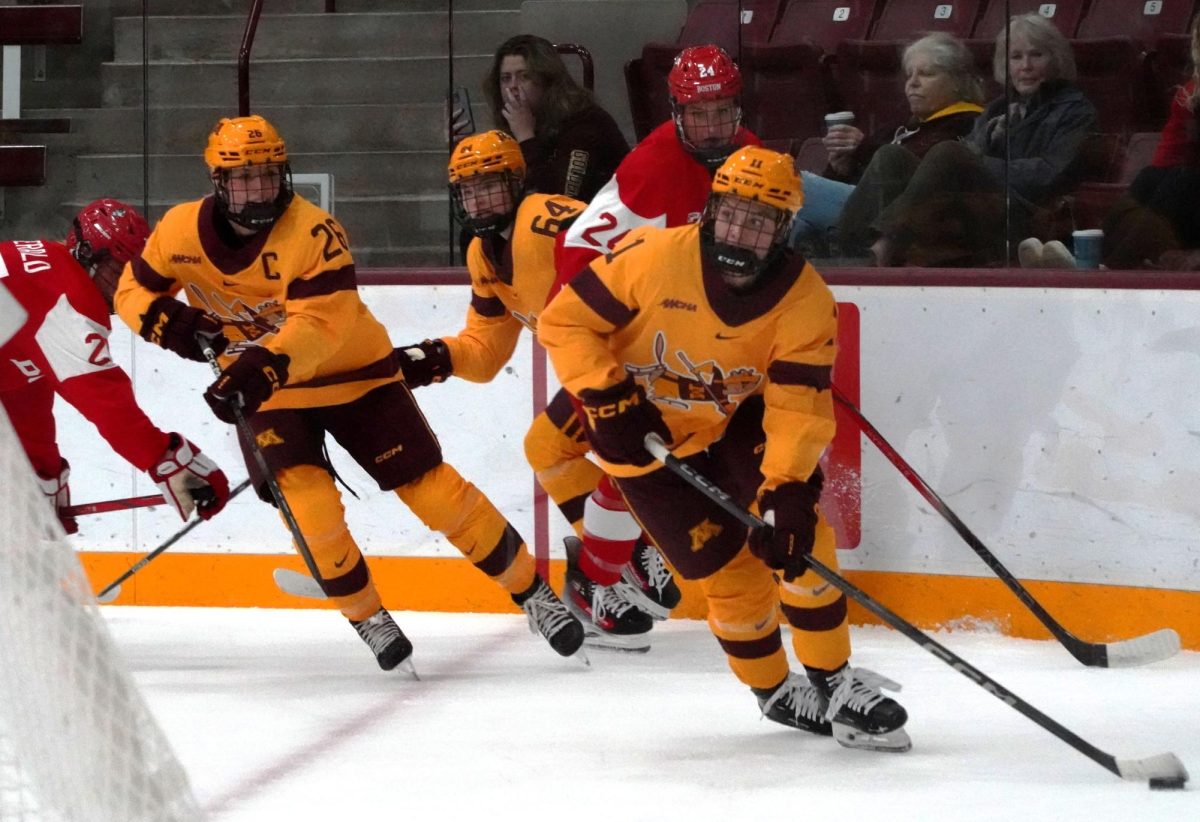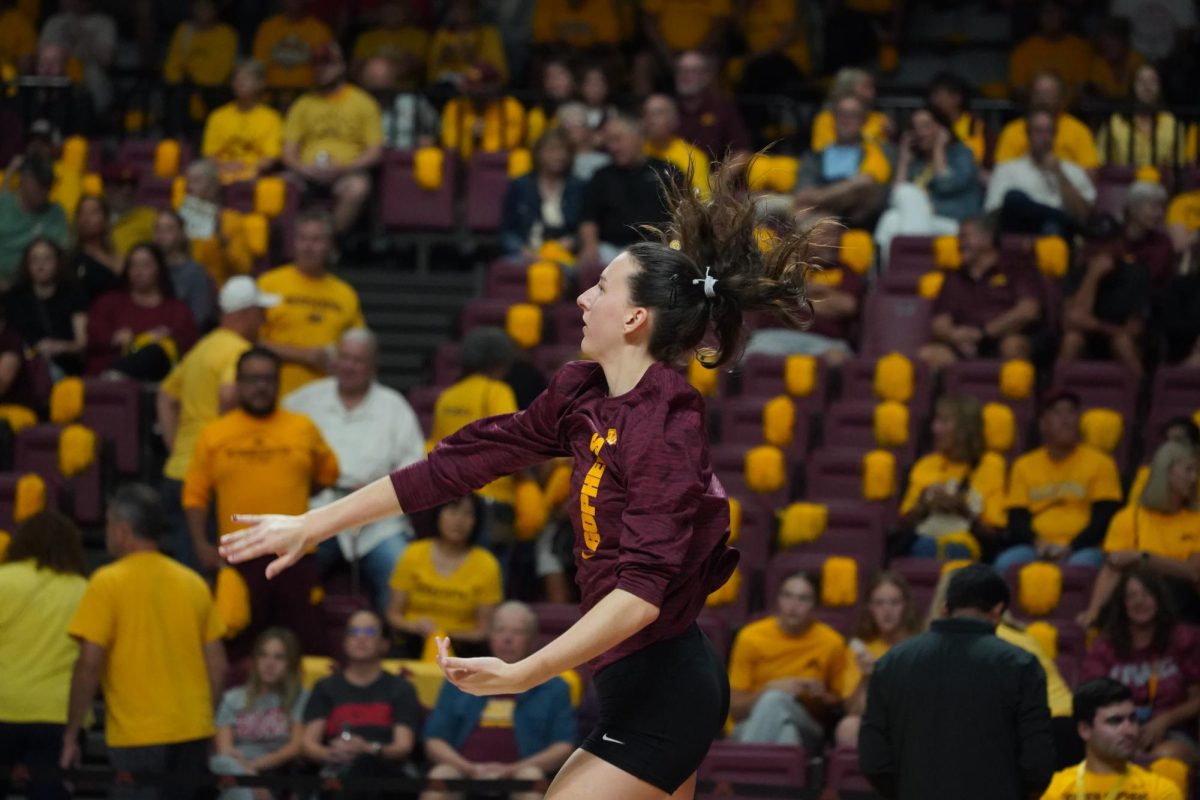In the competitive realm of sports where every move can make a difference, athletes often turn to rituals and superstitions as a means of finding comfort and boosting performance.
Dr. Carly Anderson, sports psychologist with the University of Minnesota’s athletic department, works with athletes who have superstitions, more commonly referred to as rituals.
More often than not, these rituals are a sign of anxiety management before games or can be signs of obsessive-compulsive disorder.
“I do also help athletes on the mental health side of things and I have to say, I probably see more stuff that would fall into the category of OCD ” Anderson said. “[Some athletes have] got to take a certain number of showers or put their water bottle in a certain place to feel at peace or to control some of the anxiety.”
Frequently, athletes in sports characterized by more uncertainty or chance look to superstitions as a way to control what they can and to give themselves reassurance.
“We know that they don’t work as well unless you believe in it,” Anderson said. “[Superstitions] work kind of like the placebo effect.”
Gophers softball sophomore infielder Addison Leschber presumes the reason the softball team has so many superstitions is to lighten the mood.
“It takes all of our negative thoughts and attention away from the game,” Leschber said. “We just focus on something relaxing or something funny. We’re not just hammering ourselves in the box on the field about what’s going wrong. We can look at something and think ‘Oh, that’s happy, that’s fun, let’s keep that positive mindset going.’”
As a team, there are rituals done before each softball game. According to junior infielder Nani Valencia, one of them involves a player getting picked to be a “conductor” and conduct a performance of the National Anthem in the locker room. They inherited this tradition from years past and have sung before every game.
“It always gets us in a good mood and ready to go out there and compete,” said Valencia.
Last year, pitcher Autumn Pease brought in her childhood stuffed animal, Larry the Lizard, to a game. After winning that game, the team decided Larry was their good luck charm. Larry then attended the team’s remaining games while players would pat or kiss him on the head to receive good luck.
Individually, Valencia starts the morning off with a “devotion of the day.” After she gets ready for the game, Valencia puts on her headphones, which do not come off until she steps on the field. She claims to be a superstitious person and thrives in routine.
“Music is a big thing for me,” Valencia said. “Just getting in the right headspace with some Drake or whatever it looks like for that day.”
Additionally, Valencia experiments with her habits at the plate. She will rotate through an order of adjusting her gear before an at-bat. If she adjusts her right glove first and does not get a hit, she will switch it up during her next at-bat. However, if she does get a hit, she will continue to adjust her right glove.
She does this process with her gloves, helmet, bat and the way she steps up to the plate.
“For me, if I find something that works, then I’m superstitious about it. But if I find something that’s not working, I’m okay to switch it up too,” Valencia said. “I’m kind of superstitious about changing it up if it’s not working or just keeping it if it is working.”
Jess Oakland, sophomore infielder for the Gophers, has a similar belief. If something is working for her, she continues the same process. One game, she could not find one of her batting gloves and ended up on a hitting streak.
In addition to that, Oakland always puts her gear on from left to right.
“I don’t know why I do it,” Oakland said. “I’ve always just done it since high school.”
This is a common trend seen in athletes, as Mason Nevers, forward on the Gophers men’s hockey team has a similar approach in that he never puts his right gear on before his left gear. In addition, Nevers also rotates through his game-day suits.
If the Gophers are on a winning streak, Nevers will continue to wear the same suit. However, as soon as they have their first loss, he switches up what he wears.
“For me, a lot of my game days are super routine based,” Nevers said. “Usually, I have the same breakfast and I try to get a similar amount of sleep.”
On the other hand, hockey defenseman Carl Fish puts his left gear on before his right gear. He also will not let his left shin pad touch the ground, otherwise, he claims that he will have a bad game or practice.
“I don’t know why,” Fish said. “It’s just in my head.”
Anderson hypothesizes that these similar routines make athletes feel comfortable. There is not much research done on athlete superstitions but Anderson assumes that putting on gear from one side to the other is due to a feeling of familiarity.
“I’m not sure but I know athletes when they’re competing, comfort is really important,” Anderson said. “Eating a lot of the same foods that they’re used to, getting the same kind of sleep, doing the same rhythm and routine. Routines are significant, so it can probably get down to the nitty gritty.”
The athletes Anderson treats who have intense rituals sometimes struggle if their routine is disrupted. Though superstitions or rituals are not inherently bad, people can lose focus if the environment changes.
To help overcome some of these behaviors, Anderson works on exposure and response prevention, where she intentionally exposes athletes to a different routine to make sure they are comfortable with the change and assure them it will not cause more anxiety.
“They’re usually very rigid and inflexible and then the athletes can really panic,” Anderson said. “So you want to help them be more mentally flexible and less rigid and [transition] to have a pre-performance routine, that’s not ritualistic.”






